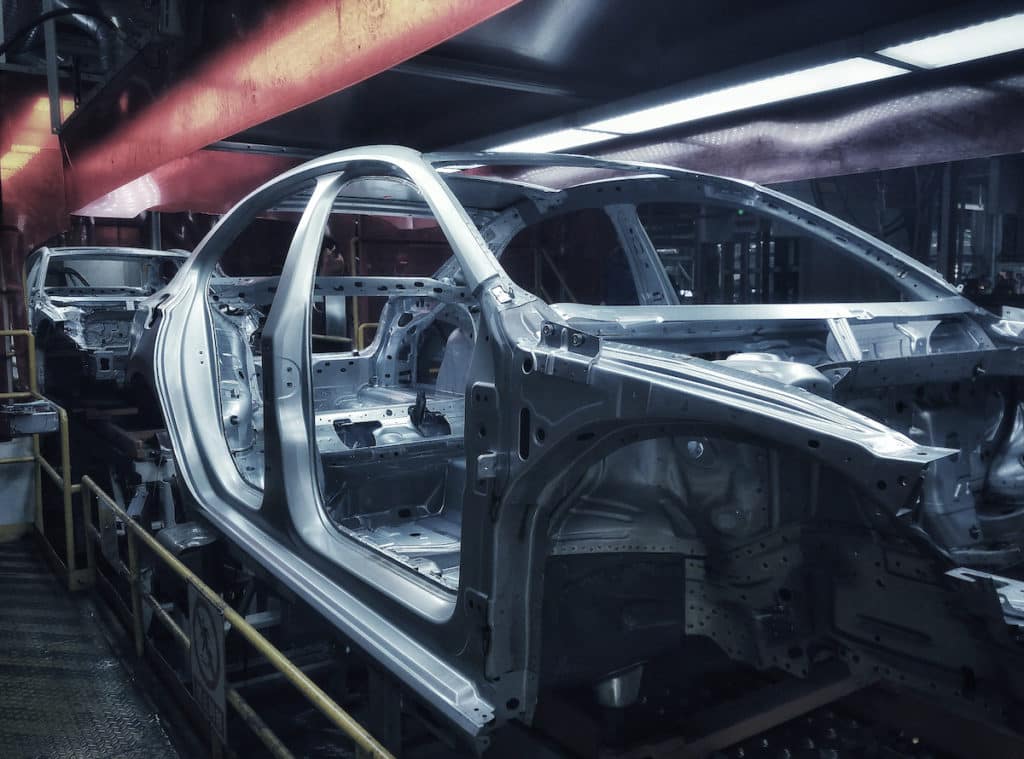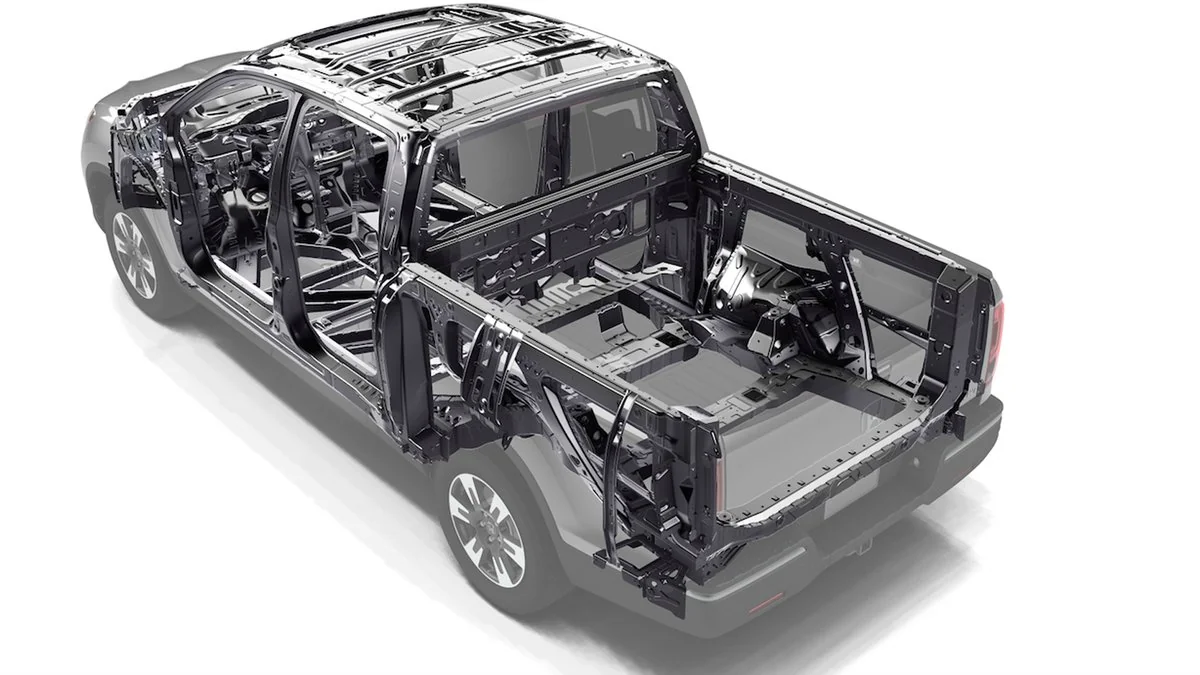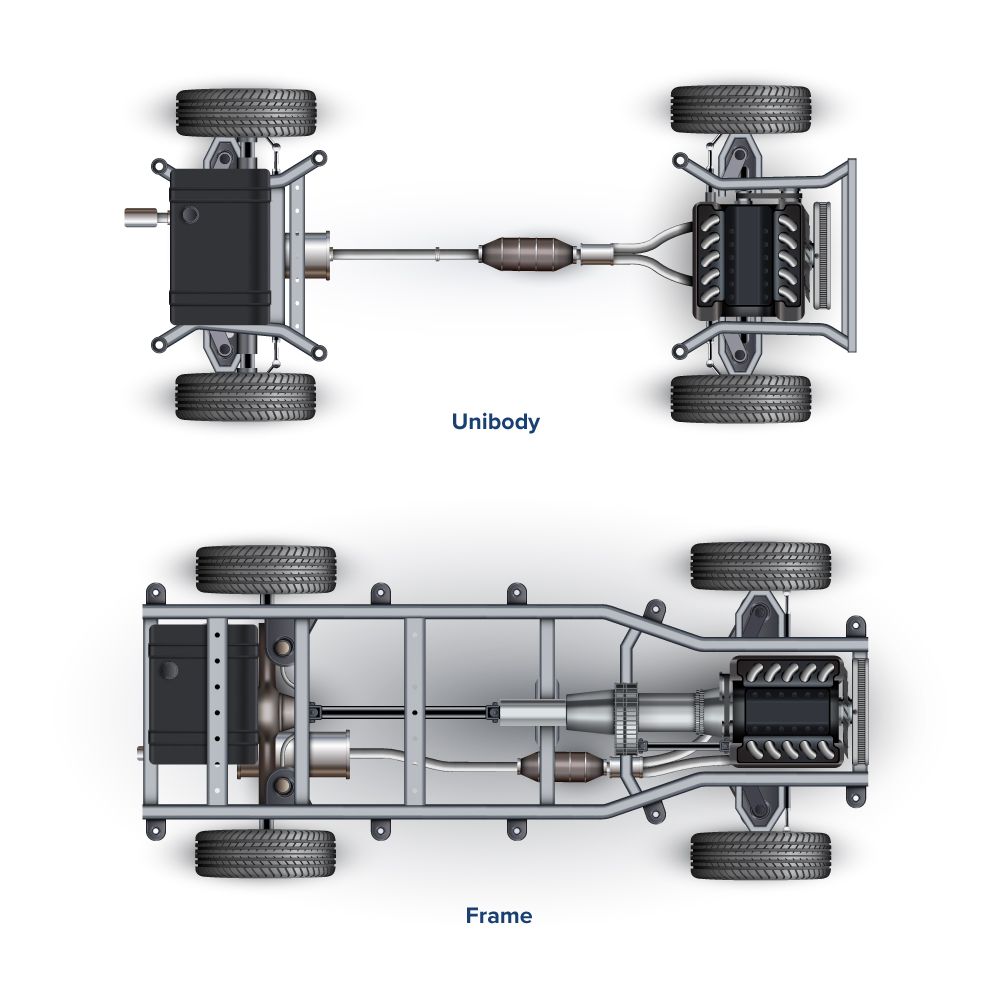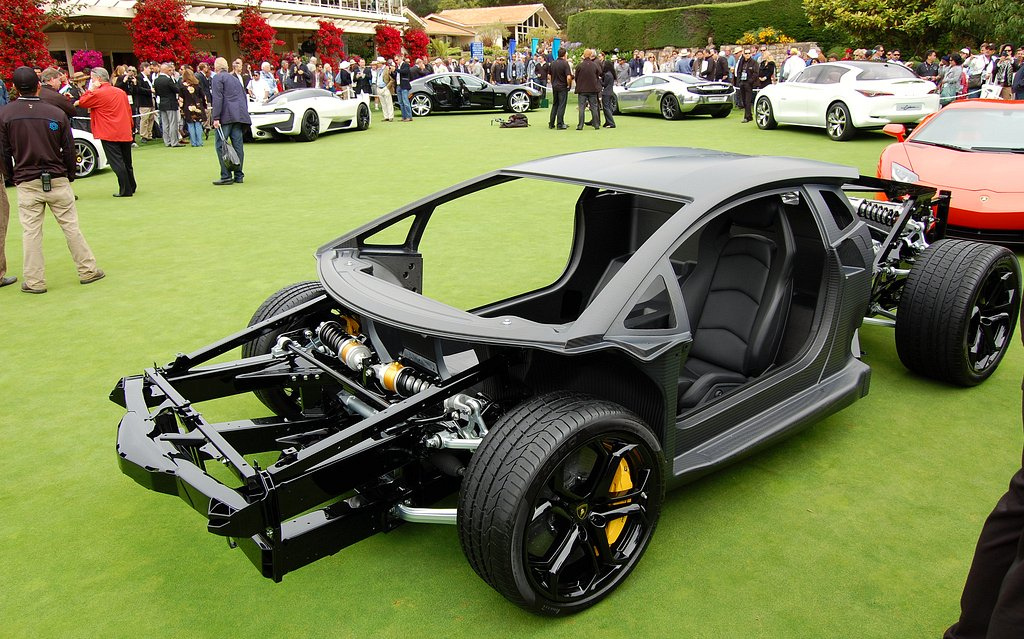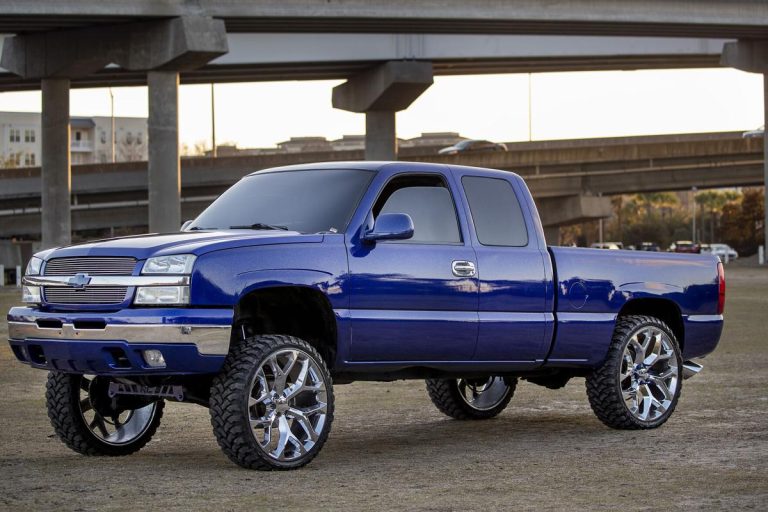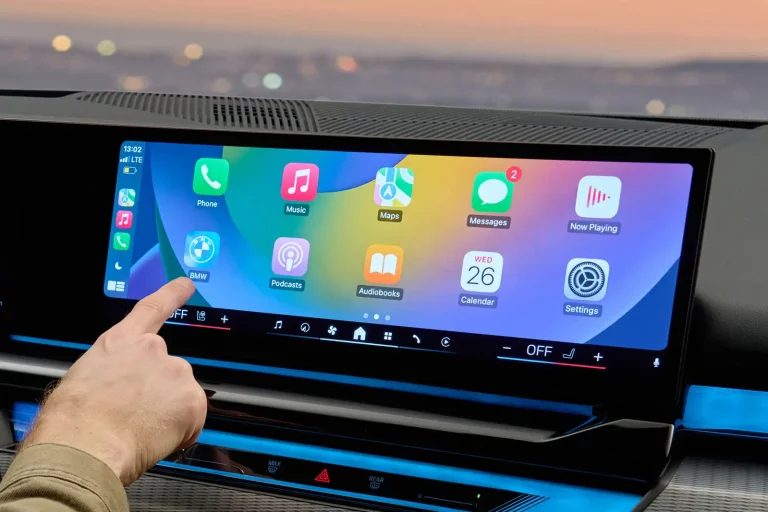Difference Between Body On Frame And Unibody
When purchasing a vehicle, choosing between a body-on-frame and unibody construction is crucial as it affects the car’s performance, durability, and safety. Body-on-frame, used in many trucks and SUVs, offers robustness and easy repairs, while unibody, common in most passenger cars, provides better fuel efficiency and handling. Today we will compare these two construction types, seeing their advantages and disadvantages to help you determine which is best suited for your driving needs and preferences.

Body On Frame Vs Unibody: A Detailed Comparision
When choosing a vehicle, one of the fundamental design aspects to consider is the type of construction: body-on-frame or unibody. Each design has its own set of advantages and disadvantages, impacting everything from vehicle performance and handling to safety and repair costs. These differences can help you make a more informed decision about which vehicle type best suits your needs.
Frequently Asked Questions
What is the difference between body-on-frame and unibody construction?
Body-on-frame consists of two separate parts—a rigid frame that supports the drivetrain and a lightweight body while unibody construction combines the chassis and the body into a single unit. They each have advantages and disadvantages in areas such as functionality, environmental impact, and aesthetics.
Are unibody vehicles superior in fuel efficiency and safety?
Yes, unibody vehicles generally have better fuel efficiency, safety features, and ride quality compared to body-on-frame vehicles. They also offer improved noise insulation, which leads to a superior sound environment in the vehicle.
What are the implications of advancements in vehicle design technology?
Advancements in vehicle design technology are influencing the preference between body-on-frame and unibody construction. These advancements favor unibody designs for electric vehicles due to their light weight and efficiency, while they’re revitalizing body-on-frame construction with high-strength steel frames particularly for durable, lightweight pickup trucks and SUVs.
Does vehicle design affect sustainability?
Yes, the choice of vehicle design impacts sustainability. Unibody vehicles contribute towards fuel efficiency and lower emissions, leaning towards environmental advantages. On the contrary, body-on-frame construction presents benefits in recycling and modularity.

Hi! I’m Larry Gibbs, studying mechanical engineering with a focus on cars. I really love Ferraris and write blog posts about the latest car stuff. When not studying or blogging, I’m usually on a road trip exploring new places. I also enjoy playing football and watching movies. Life’s an adventure, and I’m all about enjoying the ride!

